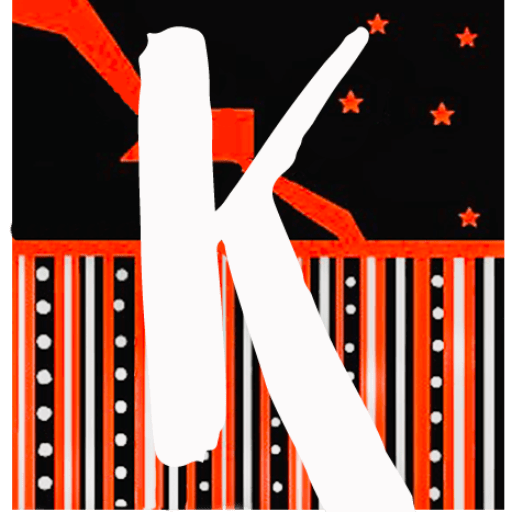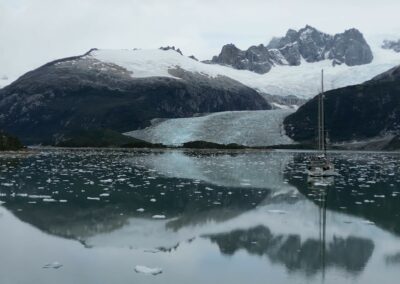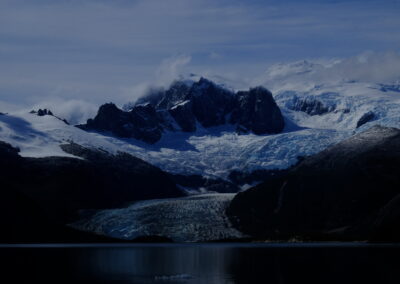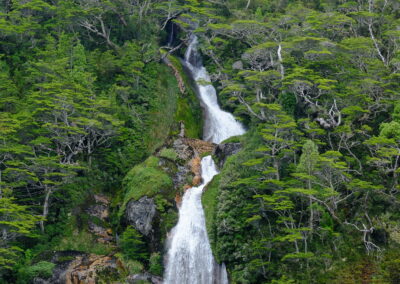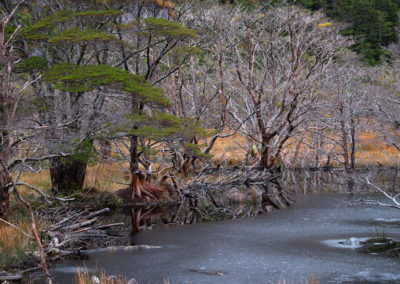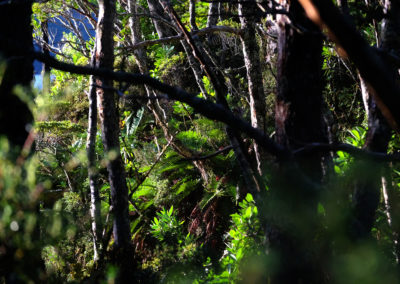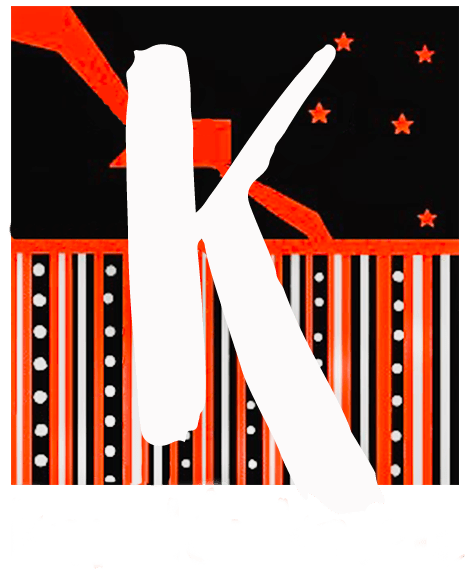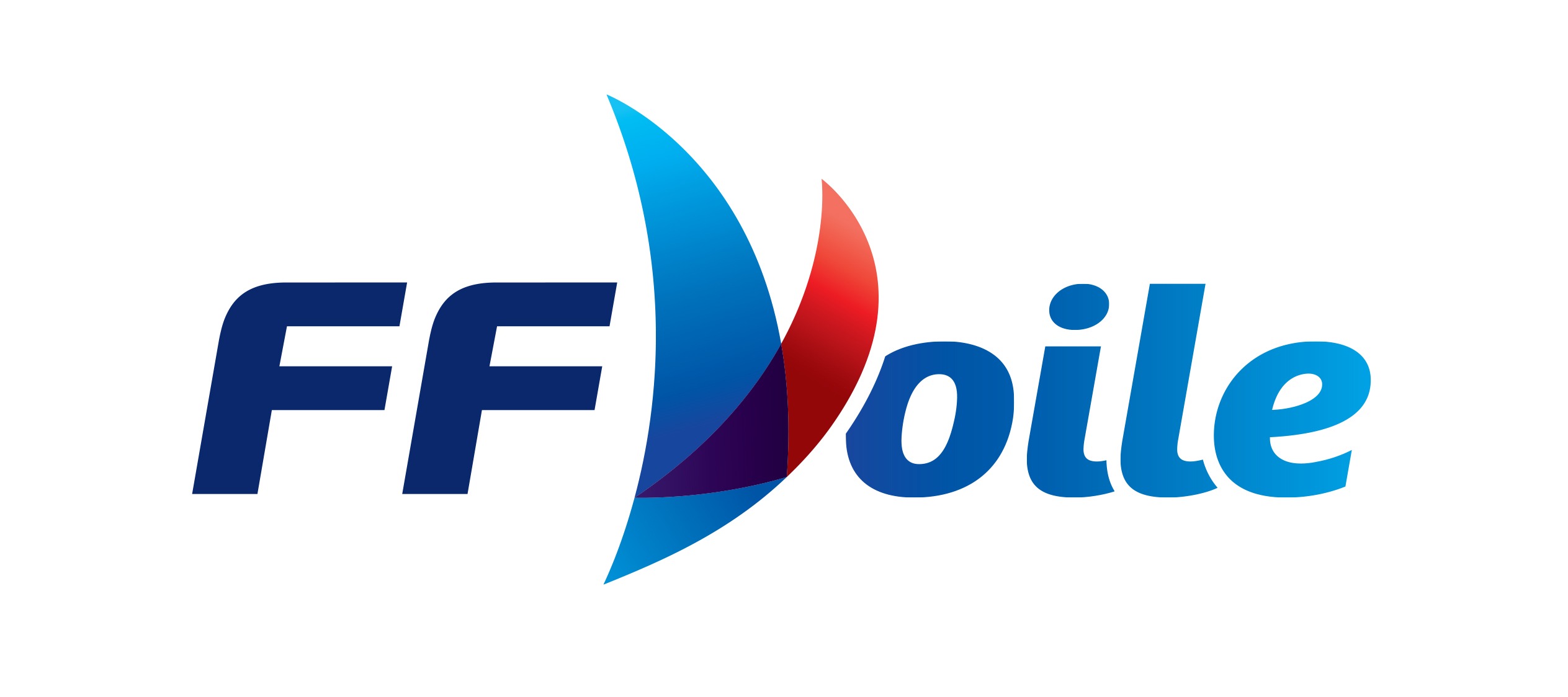Patagonian Channels
Discover Patagonia through unique sailing expeditions by joining a committed and passionate community. Together, let’s give meaning to sailing differently: a human and solidarity-based adventure at the heart of the southern lands.
sumptuous and passionately interesting places
This subpolar territory, located south of Chile and Argentina, was once inhabited solely by the Yagán people. It forms a jewel of islands, fjords, snow-capped peaks, giant glaciers, and pristine forests. Wild and difficult to access, these islands possess an archaeological, biological, and broader landscape heritage, where some of the purest natural freshwater on our planet can be found.
Since 2005, and with the goal of preserving this wonder of our planet, most of the islands south of the Beagle Channel (Onashaga) have been part of the Cape Horn Biosphere Reserve, managed by UNESCO, the Chilean National Forestry Corporation (CONAF), and the Chilean Navy.
Karukinka is a non-profit and public-interest association, which sets it apart from any commercial purpose. The sailing trips organized by our association are reserved for our members and require the payment of a membership fee, voted on annually, which covers participation in the costs of maintenance, insurance, administration, and use of the vessel (food, fuel, etc.). To learn more or to join us, feel free to contact us at +33 6 72 83 03 94 or contact@karukinka.eu.
During our expeditions to the ends of South America (departing from Ushuaia or Puerto Williams), the sailboat Milagro serves as our comfortable floating base camp to explore this remote corner of the world, accessible only by sea. If the weather is at its best, we never miss the chance to round Cape Horn (Loköshpi in Yagan, Cabo de Hornos in Spanish) before visiting the neighboring islands (L’Hermite and Wollaston islands) and heading north towards the Beagle Channel (Onashaga) and the spectacular locations around Gordon Island and south of Tierra del Fuego. Among these are Seno Garibaldi and the Pia fjord, both offering breathtaking views of the glaciers of the Darwin Range (Tierra del Fuego).
We strive to alternate, depending on the project, between water-based and onshore activities so that every day spent together reveals different facets of the region. To complement our sailing, we organize land excursions (adapted to the group’s interests and abilities), as well as line and trap fishing (the famous centolla, but also salmon, hake, shellfish, etc.). Sometimes, if conditions allow, we sail under the Southern Cross and the neighboring constellations, in order to experience the magical sensation of the Milky Way within reach, far from any light pollution.
An experienced and professional crew
Throughout our expeditions, we sail with dedicated and knowledgeable polar region professionals:
-
Damien, a certified sailing instructor (State Diploma) and professional skipper (French Merchant Marine Captain 200 Sail). He has been teaching sailing for 20 years and brings extensive experience in offshore and polar navigation, gained during expeditions in northern Norway and on the East coast of Greenland.
-
Lauriane, first mate (Merchant Marine mechanic) and scientist. She has been studying the far south of Patagonia since 2011, dedicated her PhD thesis to it, and has led several expeditions there. Her deep knowledge of the region and her commitment to revealing what’s beyond the landscapes make our journeys in the channels of Patagonia much more than a simple sailing adventure.
-
José Germán, artisanal fishing captain and former president of the Yagan community of Chile. He was sailing in the Patagonian channels with his parents, brother, and sister before he could even walk, so there’s no need to stress his local expertise… for him, Cape Horn is almost like the street corner to us, enhanced by a touch of cumbia music that he uniquely brings to the mood. His kindness and determination to protect the heritage of his ancestors have led him to become an honorary member of our association and godfather of the Milagro, which he also keeps an eye on at the Micalvi in Puerto Williams during the winter, between making traditional whale bone harpoons.
You can find more details about our small team on the dedicated page and through links to podcasts, articles, and conferences available online.
Preserving Yagan place names
In addition to being surrounded by stunning landscapes and passionate people, you will have the unique opportunity to discover this region by also using Yagan place names: bays, capes, caletas, glaciers… By doing so, you are contributing to the movement to recover indigenous toponyms in the Yagan language, a flagship project of our association since 2017, led by Lauriane and José. To date, this project has recorded just over 3,000 place names in Yagan, Haush, and Selk’nam in a database, which we are gradually restoring throughout the archipelago stretching from the Strait of Magellan to Cape Horn.
Encounters at the ends of Patagonian channels
And since these landscapes are above all shaped by the people who inhabit them, we make it a point to visit the three unique residents of Hoste Island. There, we can enjoy a traditional lamb asado prepared by Eugenio, Esther, and their son Claudio, with a stunning view over Yendegaia Bay and the Onashaga (Beagle) Channel. If we haven’t had optimal conditions for rounding Cape Horn and still have the urge to try, we set off again energetically to try to become “Cape Horners”: east towards the Wollaston and then L’Hermite islands, via Picton Channel, Gorée Pass, and then Nassau Bay. We take advantage of the prevailing winds and any “quiet” window to salute this gateway to Antarctica—the confluence of the Atlantic and Pacific Oceans—and the family that lives there. We then head on to Puerto Toro, a welcoming fishing village home to about ten people, the southernmost in the world! We finally return to Puerto Williams and/or Ushuaia to celebrate this adventure together and the unforgettable memories that come with it.
Un glacier du fjord Pia lors d’une expédition en voilier dans les canaux de Patagonie (Cordillère Darwin, Terre de Feu, Chili, 2025)
Un glacier du fjord Pia lors d’une expédition en voilier dans les canaux de Patagonie (Cordillère Darwin, Terre de Feu, Chili, 2025)
Une cascade dans la forêt native de Patagonie
La photo de cette cascade a été prise lors d’une expédition en voilier en Patagonie. C’était dans le canal Beagle, près de l’île Hoste, dans la Réserve de Biosphère du Cap Horn, au Chili en 2025
The Milagro ship, a comfortable 20m sailboat
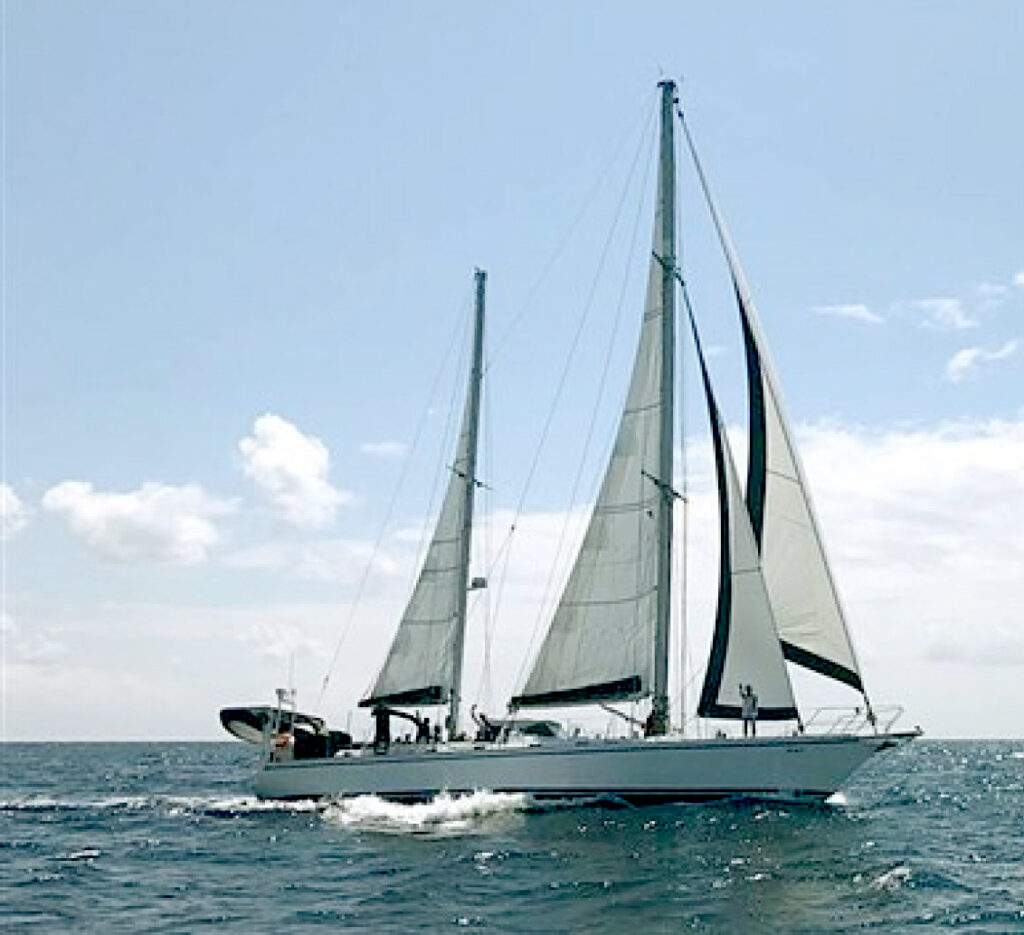
Specifications
LENGTH : 20M
BEAM : 5M25
DRAFT : 2M30
ENGINE : CUMMINS 180CV
FUEL (1500L)
WATER (1000L) + WATERMAKER
GENERATOR
SOLAR PANELS
12 BERTHS
AUTOPILOT
CENTRAL HEATING
TWO WINDLASSES
Sailing area : from Tierra del Fuego island to Cape Horn
Insurance
Our association and the ship are insured for activities taking place on board. We also recommend you to have an additional individual insurance (evacuation and repatriation)
Administrative formalities
To travel to Argentina and Chile, you will need a passport. If your stay does not exceed three months and you are French, Belgian, Swiss, etc. you will automatically benefit from a 3-month tourist visa.
Physical condition
To participate in this course, good overall health is required in order to be able to fully enjoy the activity and during walks on land, the difficulty is systematically adapted to the level of the group.
Health
Although medical services are present in Ushuaia and Puerto Williams and the crew trained in first aid, we recommend that you do a little health check before departure to avoid a dental or other surprise.
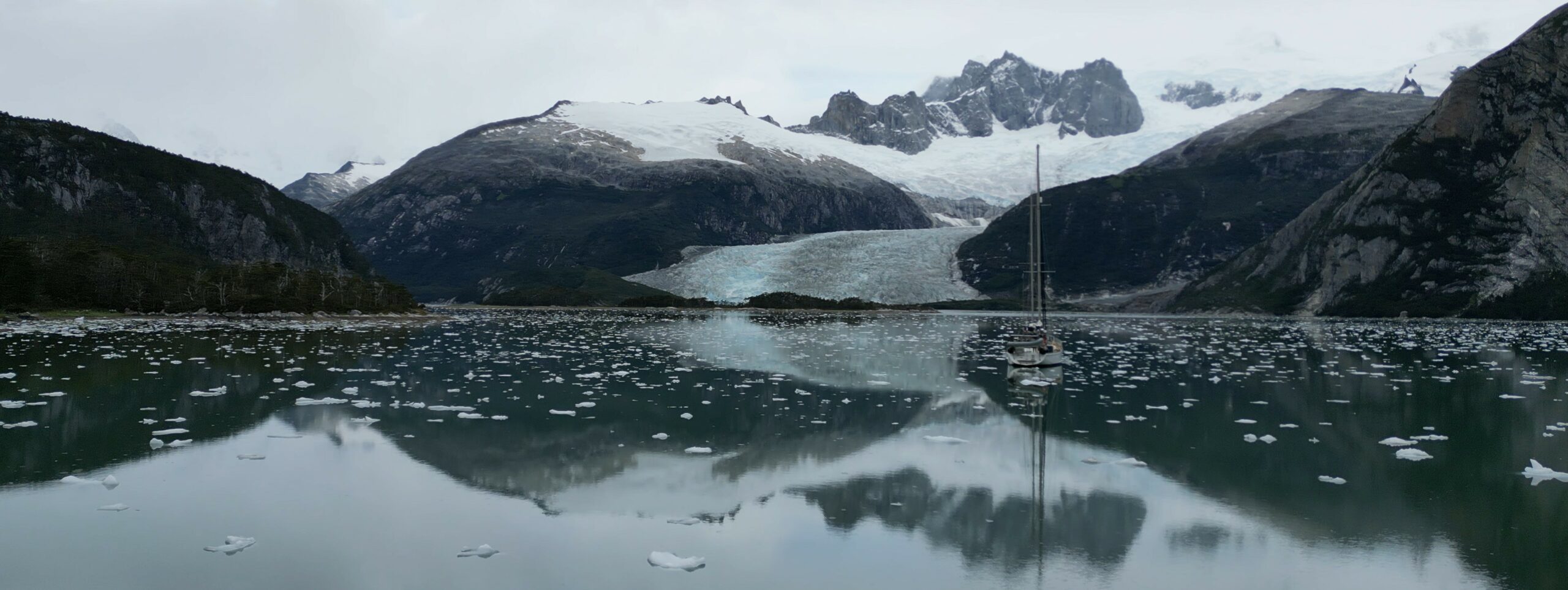
The Holy Grail of Navigators
Since the 16th century, Patagonia and its famous Cape Horn have fascinated Europeans, echoing the expeditions and first circumnavigations of navigators like Magellan and Elcano, Jofre de Loaisa, Drake, Van Noort, Bougainville, Cavendish, Cook…
These names have marked European history and fuel the imagination of these “extraordinary” journeys. It is fascinating to look at the technical challenge that these distant navigations represented, by consulting historical maps and imagining venturing into these tumultuous waters without knowing what awaited these men beyond the horizon.
Patagonia was born from “patagon”, the qualifier given by Antonio Pigafetta, chronicler of the expedition of Magellan and Elcano, to name the Tehuelches, the inhabitants of the south of the American continent. The meaning of this word is “people with big feet” and thus illustrates the difference in stature between the Spanish and these hunter-gatherer people from the pampas.
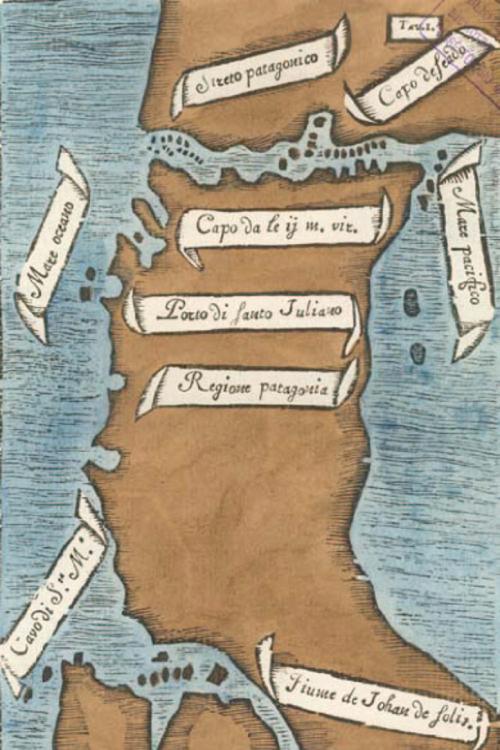
La carte du détroit de Magellan d’Antonio Pigafetta en 1520
The first inhabitants
Far from being as giant as the chronicles of the time made them believe and until the disasters of colonization, the local populations were distributed between maritime (the canals) and land (the pampas and mountainous regions) areas.
The southern lands of southern Hatitelen (more commonly known as the Strait of Magellan) were discovered by man more than 10,000 years ago and populated by different ethnic groups with distinct lifestyles: hunter-gatherers and canal nomads moving from island to island by canoe.
At the crossroads of these peoples is the Great Island of Tierra del Fuego, now divided between Argentina and Chile, where four peoples still live together whose number was extremely reduced during the genocide between 1870 and 1925. It These are the Selk’nam, Haush, Yagan and Kawesqar, today numbering several thousand people who claim their identities and their rights.
From Hatitelen to Loköshpi
Let’s sail together and participate in our mapping project in indigenous languages, from the Strait of Magellan to Cape Horn, via the Beagle Channel.
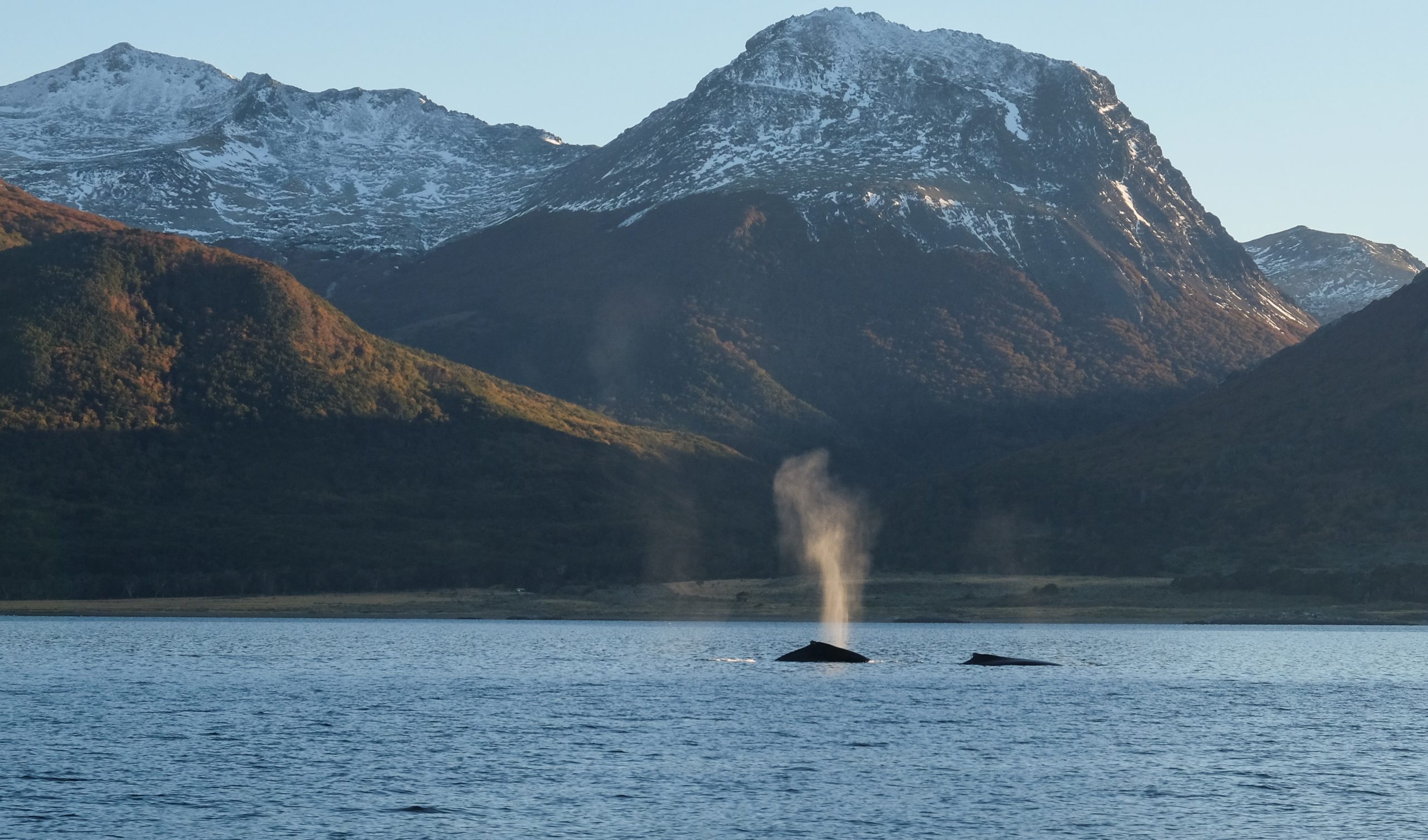
We, members of the Karukinka association founded in 2014, have brought together enthusiasts from different worlds to offer the unique opportunity to go beyond the grandiose landscapes that make up the daily life of sailing. Researcher and founder of Karukinka, Lauriane Lemasson has been studying and exploring these wild places steeped in history since 2011, encouraging us to increasingly respect and discover the knowledge of those who preceded us there. With this unique expertise, we have taken the step of introducing our members to all facets of these places, with her and a crew of enthusiasts and volunteers.
We organize various activities throughout your stay such as hiking and fishing. If you have specific requests (e.g. organization of shipping, access to places requiring special authorizations) the Karukinka association can also support you in carrying out these projects, whether at the logistical or administrative levels and with the Chilean and/or Argentinian local authorities.
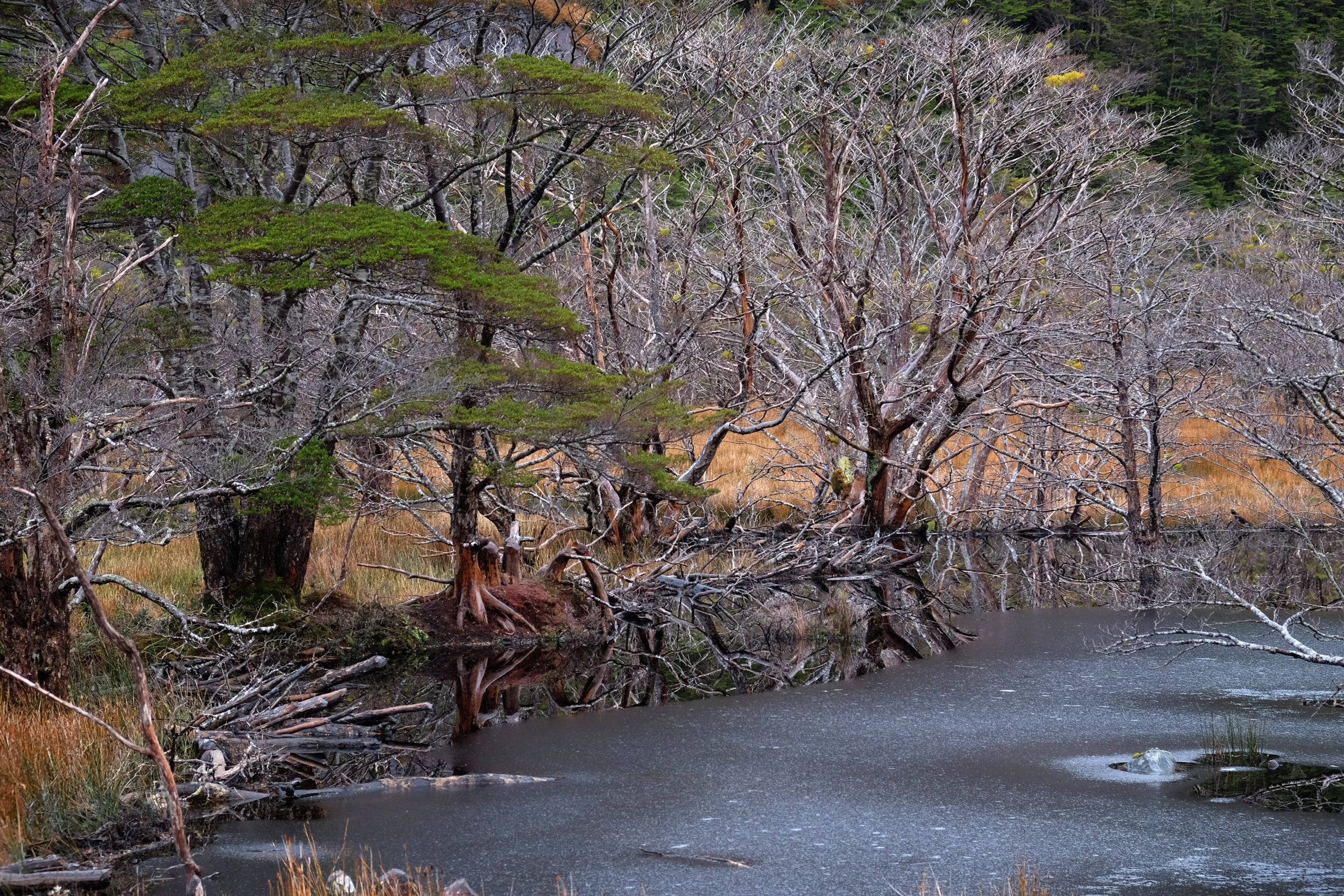
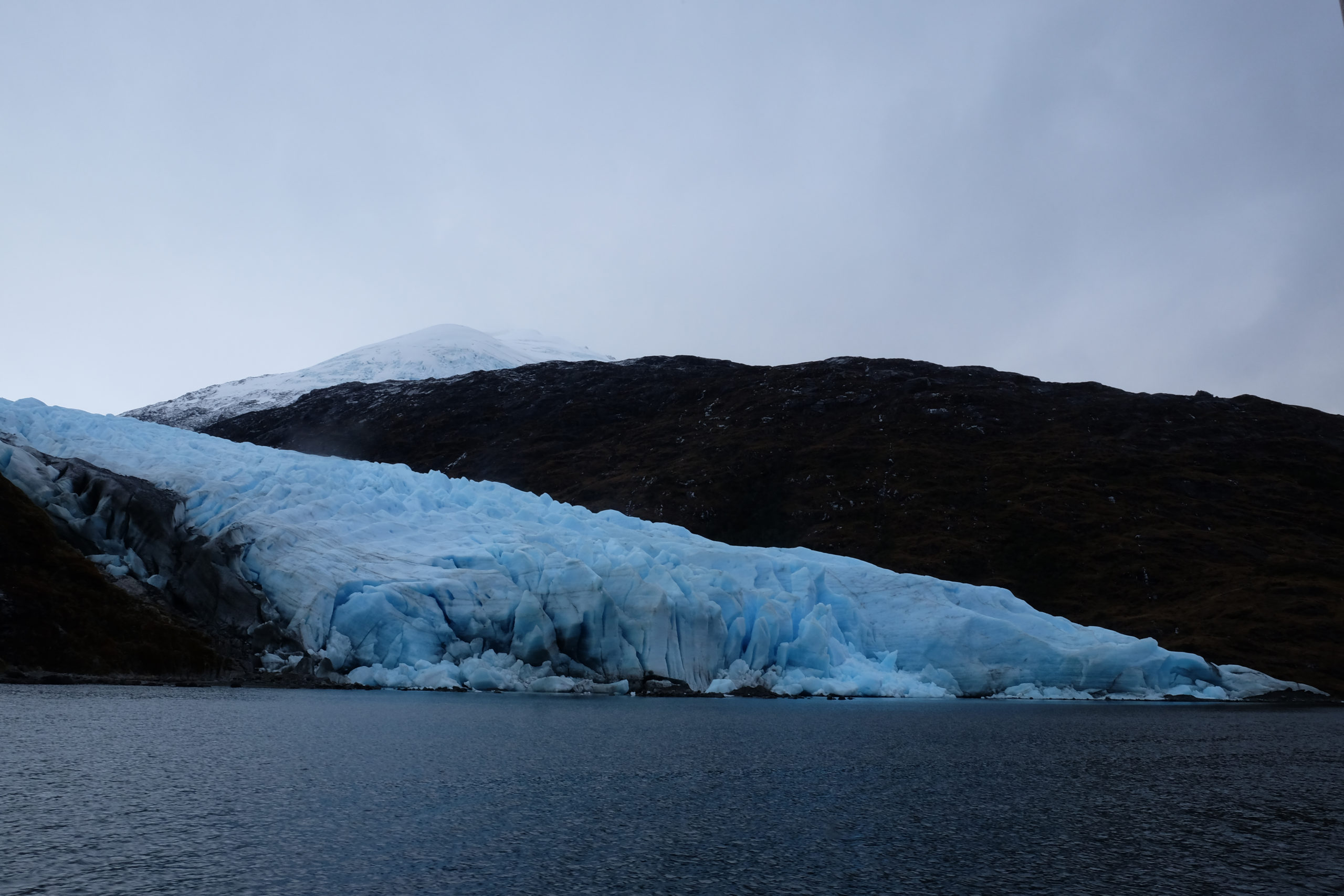
Aboard the comfortable Milagro sailboat, we can access places steeped in history and breathtaking, in small groups and where no large boat can access. This exploration experience is completed by meetings, the discovery of certain ancestral Yagan techniques (fishing, basketry, etc.) and the tasting, depending on the season, of what local resources offer (giant sea spiders, berries: calafates, michay and chauras).
Friendly and committed courses
On board Milagro and as during all our trips organized under the aegis of the French Sailing Federation, we are supervised, of course, but above all a full member of the crew. We therefore participate in everything, from maneuvers to tasks inherent to life on board.
Together we will observe whales, seals, southern dolphins and Andean condors, evolve in the wake of the Yagan and explorers of yesterday and today, and taste local flavors while admiring the countless facets of the Patagonian canals . All this while financing the committed projects of our association, in favor of local indigenous populations.
We thank you in advance for your support and we are already happy to share our passion for these preserved places.
